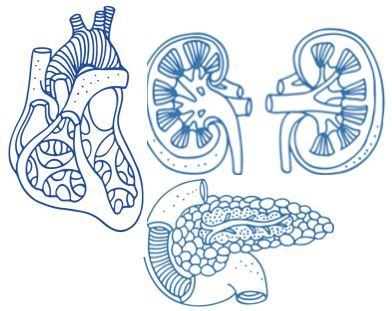- Clinical Technology
- Adult Immunization
- Hepatology
- Pediatric Immunization
- Screening
- Psychiatry
- Allergy
- Women's Health
- Cardiology
- Pediatrics
- Dermatology
- Endocrinology
- Pain Management
- Gastroenterology
- Infectious Disease
- Obesity Medicine
- Rheumatology
- Nephrology
- Neurology
- Pulmonology
SGLT-2 Inhibitor Prescribing in the US is Failing People who Need them Most
No health system across the 28 analyzed in this study demonstrated appropriate SGLT2i prescribing for more than 25% of eligible individuals.

In a recent analysis of data for 716,387 US adults with diabetes and of 2,473,440 without diabetes, only 11.9% and 3.1%, respectively, of individuals with a class 1a recommendation for sodium glucose cotransporter-2 inhibitor (SGLT2i) therapy received a prescription for a medication in the class, a new databased analysis found.1
The proportion of those with diabetes but no class 1a recommendation who received a prescription was nearly the same as those who did have the recommendation, at 11.4% (95% CI, 11.3-11.6; standardized mean difference between with and without recommendation, 1.3%), suggesting significant underuse of the medication class that is guideline recommended to reduce hospitalizations for heart failure, recurrent cardiovascular events, and progression of chronic kidney disease. Thus, study authors wrote, they carry a "class 1a recommendation in people with diabetes and atherosclerotic cardiovascular disease, HF or CKD and in people with severe albuminuria or HF, regardless of diabetes status.”1
More than half (63.4%) the individuals with diabetes had a disease profile warranting SGLT2i therapy but only about 1 in 10 received it. In the group without diabetes, 6.2% were eligible for first line therapy with an SGLT1, yet only half received a prescription.
The analysis was published in the Journal of the American College of Cardiology by Jung-Im Shin, MD, PhD, assistant professor of epidemiology at Johns Hopkins Bloomberg School of Public Health, and colleagues. Shin et al studied SGLT2i prescriptions linked with health records for 3,189,827 adults from 28 US health systems housed in the Optum Labs Data Warehouse between April 2022 and March 2023. They assessed prescription rates, stratified by presence of diabetes and class 1a recommendation for the medication class.1
The investigators found that no health system among the 28 represented had an SGLT2i prescription rate greater than 25% among members with a class 1a recommendation. Rates tended to be higher in systems with greater proportions of commercially insured individuals and lower proportions of older adults with Medicare, the researchers wrote.1
Shin and colleagues also reviewed the type of clinicians associated with SGLT2i prescriptions and found that for adults with diabetes, family practitioners or internists most commonly prescribed the medications (46.7% in those with a class 1a recommendation; 60.7% in those without one), followed by an endocrinologist. For those without diabetes, cardiologists were the most common type of clinicians writing SGLT2i prescriptions, (51.8% in those with a class 1a recommendation), according to the results.1
The group most commonly prescribed SGLT2i comprised adults with multiple comorbidities, ie, diabetes, atherosclerotic cardiovascular disease, kidney disease and heart failure, the team reported.
“The findings demonstrate an important gap in contemporary US clinical care and highlight the need for interventions to address the shortfalls in optimal SGLT2 inhibitor prescription practice,” Shin and team wrote.1
Writing in an accompanying editorial,2 Tariq Ahmad, MD, MPH, associate professor of medicine and chief of the Heart Failure Program at Yale School of Medicine, and colleagues pointed to a number of what they understand as the “shortfalls in optimal” SGLT2i prescribing practice. They suggested that clinical inertia is a large part of the underuse of therapies like the SGLT2i. Both systems and individual clinicians can do better. “We must commit to ensuring that our care is commensurate with the best clinical evidence. This means doing our best to overcome the many barriers to prescribing SGLT2 inhibitors to patients for whom they are recommended: the chaos of ambulatory care, the fear of offending a colleague by prescribing a medication that may have been their purview historically, and the need to navigate a fee-for-service system that incentivizes quantity over quality of care.”
